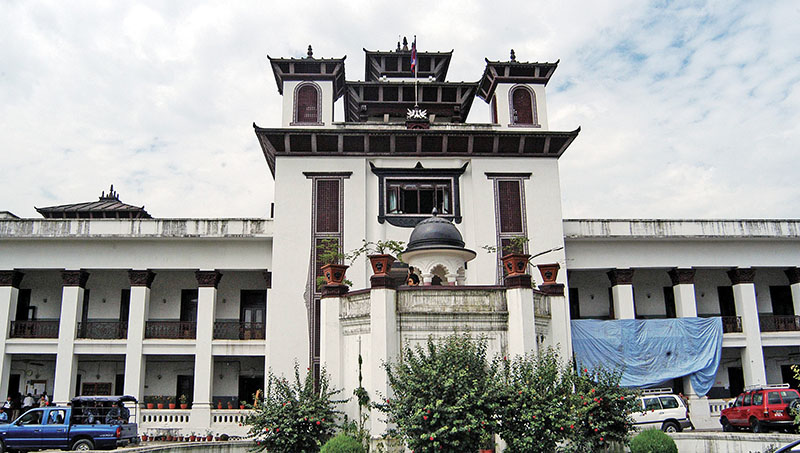EC presses govt to frame laws for National Assembly elections
Kathmandu, December 10
The Election Commission has urged the government to frame laws to govern the formation of National Assembly, the Upper House of the Parliament.
According to Article 86 of the Constitution, the president will have to call the first meeting of the Parliament, including the National Assembly, within 30 days of announcing final results of parliamentary polls.
The provincial and parliamentary elections were held in two phases – on November 26 and December 7 – and the final results are expected to be announced this week.
“We are not able to begin the process of electing National Assembly members without laws governing elections of NA members,” said Spokesperson for the Election Commission Navaraj Dhakal. “We want new laws to be framed as soon as possible.” The government had planned to pass the National Assembly Members Election Bill but it failed to do so since the Nepali Congress differed with the CPN-UML and CPN-Maoist Centre on the contents of the bill.
The NC has proposed single transferable vote system in the ordinance which will give some advantage to the opposition parties as well. The NC proposal adds that chiefs and deputy chiefs of local levels and provincial members will elect the 56 members of the National Assembly.
The UML and CPN-Maoist Centre, however, want a system whereby the parties that command majority in the local levels and provinces can elect more members to the National Assembly.
Bheshraj Adhikari, personal secretary of President Bidhya Devi Bhandari, told THT, “The National Assembly Election Ordinance is being considered by the president. She will take a call on this as soon as possible.” According to sources, President Bhandari has consulted legal experts, including the attorney general, and wants to know whether or not the ordinance conformed with the constitution.
Sources said the ordinance did not conform with the constitution but since there was no Parliament to enact laws, and since there was no other alternative to frame laws to govern the election of Naitonal Assembly members, the president was under pressure to endorse the ordinance.
According to constitution expert Tika Ram Bhattarai, the constitution cannot be amended in the absence of the Parliament.
The National Assembly Members Election Bill was supposed to be passed by the Parliament on October 4. The UML and CPN-MC formed left alliance on October 3, forcing the government to withdraw the bill from the Parliament and send an ordinance to the president. According to the ordinance, surplus votes of one member will be transferred to another member, benefiting opposition parties.
As per the constitutional provisions, eight members, including three women, one Dalit and one differently abled or a person from minority community, will be elected from each province. Besides the 56 elected members, the president will nominate three members, including a woman, as recommended by the government. The 59-member National Assembly will be a permanent body of the Parliament with the tenure of members not exceeding six years. One third of NA members will serve a two-year term, another one third will have a tenure of four years and the remaining one-third a tenure of six years. In the beginning, terms of NA members will be decided through lottery.
The NA should elect its chair and vice-chair within 15 days of its first meeting.






